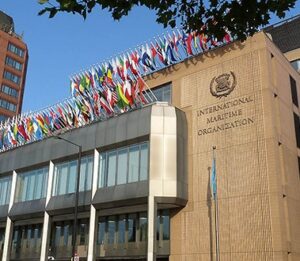 India has been chosen as the pioneer lead country for the International Maritime Organization’s (IMO) Green Voyage2050 Project, which aims to assist developing nations in their efforts to reduce GHG emissions from ships.
India has been chosen as the pioneer lead country for the International Maritime Organization’s (IMO) Green Voyage2050 Project, which aims to assist developing nations in their efforts to reduce GHG emissions from ships.
The following projects have been chosen:
• Ambuja Cements Limited installed a waste heat recovery system on a bulk carrier.
• Inland ferry greening: Assam Directorate of Inland Water Transport (IWT)/Assam IWT Development Society
• Mumbai Port Authority is working to green passenger wooden ships.
• Ocean Sparkle Ltd. produces electric hybrid tugs.
All MARPOL standards relevant to carbon emissions on Indian ships have been enforced by the Government of India. Currently, the regulations are primarily concerned with lowering carbon emissions through improved energy efficiency and attaining a progressively increased (yearly) carbon intensity decrease.
The first National Centre of Excellence for Green Ports and Shipping (NCOEGPS) in India has been established. On November 18, 2022, the Ministry of Ports, Shipping and Waterways (MoPSW) signed a Memorandum of Agreement with Deendayal Port Authority, Kandla; Paradip Port Authority, Paradip; V.O. Chidambaranar Port Authority, Thoothukudi; Cochin Shipyard Limited, Kochi, and The Energy & Resources Institute (TERI). NCOEGPS provides policy and regulatory support for the development of a regulatory framework and alternate technology adoption roadmap for Green Shipping in India in order to promote carbon neutrality and the circular economy. As a knowledge and implementation partner, TERI houses and leads the NGOEGPS.
Other proactive measures taken to assist ships that are unable to fulfil even the current carbon intensity reductions include:
1. As a cost-effective option, the Government of India has approved using sustainable biofuels and their mixes as fuels by Indian ships.
2. To ensure effective operations, a digital module has been designed and is in use to capture fuel usage from each ship activity for each voyage, that is, at anchorage, port stay, sailing period, and so on.
This information was provided by Shri Sarbananda Sonowal, Union Minister for Ports, Shipping, and Waterways, in a written reply to the Lok Sabha on Friday.
